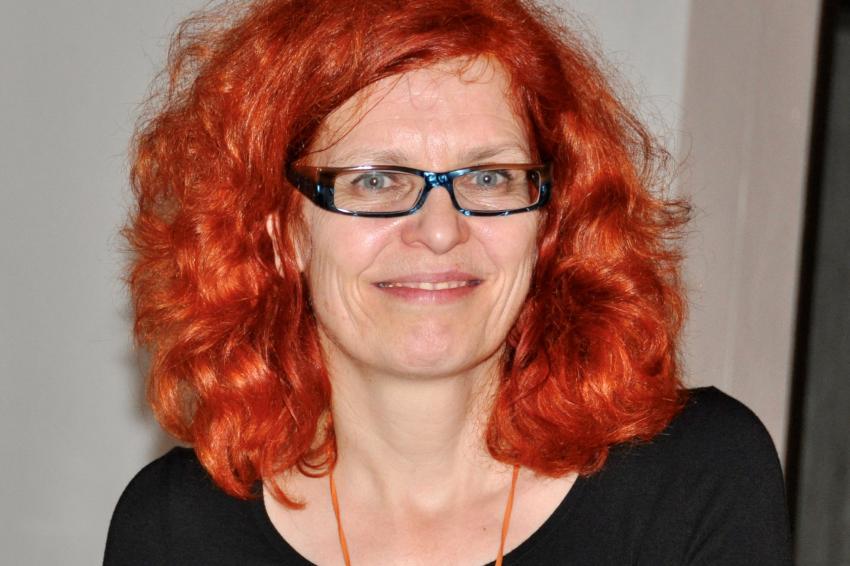On Track for a Sustainable Future
CHT sticks to ambitious goals despite difficult conditions
The CHT Group develops, produces and sells specialty chemicals worldwide. As headquarters of the Group, CHT Germany in Tübingen focuses on sustainable chemical products and process solutions. Sustainability management in the company has been steered from the very beginning by the Sustainability Steering Committee. Annegret Vester is on board as Chief Sustainability Officer (CSO). Back in 2022, CHEManager spoke with her about the newly created position and the Group's sustainability goals. Birgit Megges now asked Vester what successes have been achieved since then and how CHT is developing the sustainability agenda further.
CHEManager: With its "Strategy 2025", CHT set itself sustainability goals at the beginning of 2020, and you yourself have been responsible for them as CSO since the end of 2021. Which items on your agenda have you been able to implement so far?
Annegret Vester: We will be on track by the end of 2022 in accordance with the goals we have set ourselves in the Sustainability Roadmap 2025, but we simultaneously see that the topic has gained significant momentum in the public debate, not least with the Transition Pathway for the Chemical Industry, but also via targets set by the German government.
At the end of 2021, we made a commitment to the Science-Based Targets initiative, or SBTI, on climate protection to meet the 1.5-degree targets of the Paris Agreement and to achieve Net Zero in 2045, without ever having previously calculated a corporate carbon footprint for the CHT Group. Therefore, 2022 became an extremely exciting year, as last year we not only calculated the first Group-wide Corporate Carbon Footprint, but also set 2021 as the base year for our climate protection activities.
The critical task here was to obtain comparable and detailed data from all 26 CHT companies and for all associated sites. In tackling this task, we were able to rely on our IT which unceremoniously supplemented our internal data collection tool for sustainability data with the relevant Scope 3 data. By the end of 2022, we not only had clarity on the starting point in terms of climate protection but were also able to define the SBTi-compliant reduction potentials — Scope 1+2 — for the next ten years as well as the global investments in energy efficiency measures and energy source changes required for this.
"Only few customers are currently prepared to pay higher product prices for climate protection."
What means do you use to support your customers so that they, too, achieve their climate protection goals? Do your customers reward this by being willing to pay higher prices?
A. Vester: To reduce Scope 3 emissions, we increasingly develop products and solutions based on bio-based or recycled raw materials that show an equally good performance. The problem, however, is that few customers are currently prepared to pay higher product prices for this active approach to climate protection. In the Scope 3 downstream area, we have for many years focused on the development of products and solutions which, when used by customers, have an energy-saving effect for them. At present, only few customers are prepared to pay a higher price for sustainable products, because for the majority the additional price cannot be monetized in the market. However, customers with a clear sustainability approach and dedicated demand for advice on more sustainable solutions are also approaching us.
"In our German plants, energy costs have more than tripled compared with the end of 2021"
What problems have you encountered so far in achieving your goals?
A. Vester: The energy crisis and supply chain issues have affected us in the implementation of our sustainability goals but have not really set us back. Of course, in times like we are currently experiencing, investments in one's own infrastructure and necessary tool solutions are calculated with a sharp pencil and tend to be delayed. In our German plants, energy costs have more than tripled compared with the end of 2021 and are creating significant cost pressure - especially for a company that supplies the international competitive market.
However, our objectives will not be reduced by such disruptive events, but merely implemented at a somewhat slower pace.
The transformation of the chemical industry to climate neutrality demands a great deal from all companies. How can small and medium-sized enterprises meet the challenges?
A. Vester: The Transition Pathway considers the importance of SMEs for the industry, but at the same time shifts the question of how SMEs should tackle and implement this challenge to the industry itself and to the member states.
It is clear that in order to implement the Transition Pathway in a timely and professional manner, SMEs will need to build additional staff in many areas of the business, from chemical compliance to finance, legal counseling and sustainability management. In view of the economically strained international competitive markets and the labor market, this prerequisite must already be regarded as critical today. Furthermore, the actors who have been charged with the shaping and implementation of many topics usually have little knowledge of the needs or specific problems of small and medium-sized enterprises. Industrial policy is made in the associations, and here, as a rule, the large industrial companies are represented.
As medium-sized companies, we need to stay engaged and be even more active in implementing the transformation..
So in your estimation, the hurdles for SMEs are higher than for large-scale industry?
A. Vester: Yes, I believe the hurdles for SMEs are higher and would like to illustrate this with two examples: The transformation requires high investments, e.g. the implementation of environmental technologies or in-house renewable energy production facilities. Financing and the incalculable risk of success often prevent such projects in SMEs. Neither the personnel nor the access to subsidies or loans are available here in a comparable way as in large-scale industry.
Digital solutions can be stated as second example, they are especially essential in the area of sustainability reporting and the Supply Chain Act. There are now numerous offerings here, but they are generally geared to the needs of large-scale industry. SMEs generally not only lack the necessary infrastructure, but also simply lack the availability of the data required for the existing tool solutions. Solutions suitable for SMEs are not yet available or attempts are made to adapt the digital large-scale industry solutions at great expense.
How is CHT dealing with these challenges?
A. Vester: At CHT, we have analyzed the tasks and challenges that the transformation will bring and have developed a plan for implementation. However, we do not yet know for all topics whether our assumptions will work out. We are a globally active company and, as part of our sustainability management, involve all sites in the future positioning and implementation of the transformation of the chemical industry.
We have also started to become even more actively involved in the industry and to work together with our suppliers and customers on solutions - from the technology side, but also when it comes to the provision or exchange of data. We are getting involved in the association and trying to incorporate our needs into the transformation.
A current focus topic is the implementation of the Supply Chain Due Diligence Act. How are you preparing for this?
A. Vester: In 2022, we looked at the requirements placed on us by the Supply Chain Due Diligence Act and realized that we have already done good preliminary work with our goal of sourcing > 90% of our purchasing volume from sustainable suppliers by 2025. For around five years, we have been screening our raw material suppliers with regard to social and ecological issues using a self-assessment questionnaire. We have implemented a Supplier Code of Conduct and a process to qualify suppliers who do not meet our sustainability requirements. As soon as we are required to report, we are not only well prepared but already well advanced.
The topic requires transparency and foresight. What are the next planned steps on your way?
A. Vester: We are currently revising our questionnaire and will extend the screening to more and more of our suppliers in the future. We are convinced that this means we are already well prepared for the time when we will be required to report. However, this only applies to the German Supply Chain Act. Should the European legislative proposal come to pass, we do not see ourselves in a position, either in terms of personnel, structure or organization, to screen direct and indirect suppliers. We do not consider an extension of the scope downstream in the direction of customers to be enforceable, nor do we believe it makes sense to do so in the sense of assigning responsibility.
Safeguarding human rights and environmental protection are of utmost importance to us. Elaborate and bureaucratic standard processes such as the Supply Chain Act make only a limited contribution to change here, as such processes are more concerned with risk assessment.
Personal Profile
Annegret Vester has been Chief Sustainability Officer (CSO) of CHT Germany since October 2021. Vester, who holds a doctorate in chemistry from the University of Stuttgart, has been with the Tübingen-based chemical company since 2001, initially as Head of Global Marketing and, since 2019, as the Head of Strategy & New Business Development. In these roles, she already accompanied CHT's transformation into a sustainability-focused chemical company.





